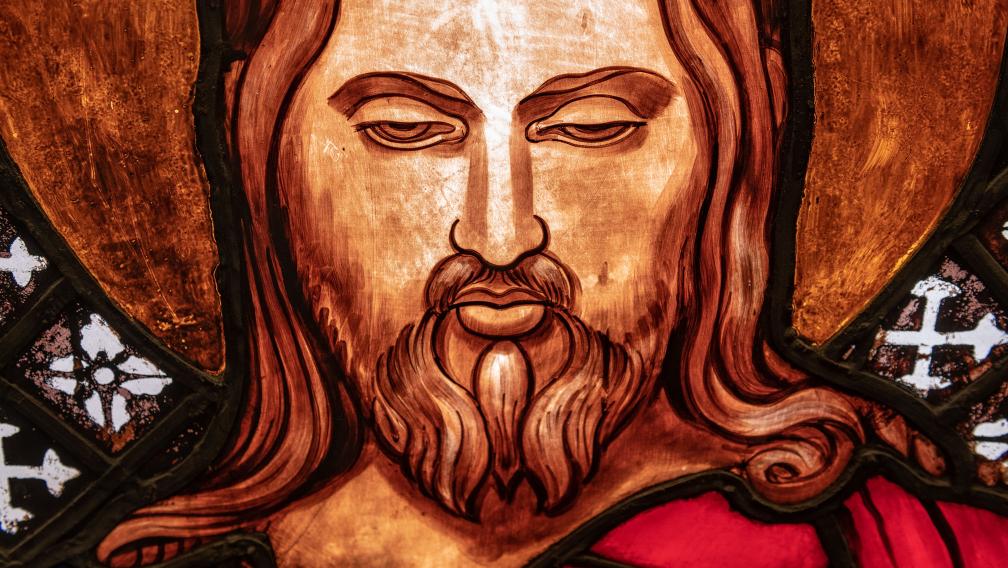John 12:1–8
Six days before the Passover Jesus came to Bethany, the home of Lazarus, whom he had raised from the dead. There they gave a dinner for him. Martha served, and Lazarus was one of those at the table with him. Mary took a pound of costly perfume made of pure nard, anointed Jesus’ feet, and wiped them with her hair. The house was filled with the fragrance of the perfume. But Judas Iscariot, one of his disciples (the one who was about to betray him), said, “Why was this perfume not sold for three hundred denarii and the money given to the poor?” (He said this not because he cared about the poor, but because he was a thief; he kept the common purse and used to steal what was put into it.) Jesus said, “Leave her alone. She bought it so that she might keep it for the day of my burial. You always have the poor with you, but you do not always have me.”
There are puzzling things about this Gospel story: Why did Mary anoint Jesus? And why does she do it in the middle of a dinner party? Doesn’t Judas have a point about giving money to the poor? And what’s with Jesus saying, you will always have the poor with you? As we approach Palm Sunday, when Jesus enters Jerusalem and the journey to the Passion begins, the Gospel writer points us to the identity, coming death, and resurrection of Jesus.
The original audience for this Gospel would’ve known the meanings of anointing. The body is anointed before burial. And, in the Hebrew scriptures, anointing signifies God’s choice of a new ruler. So, in her extravagant gesture to Jesus, Mary reveals these two aspects of Jesus’s identity: she prepares Jesus’s body for death and acknowledges him as the “anointed one.” Just as the presence of Lazarus, who was raised from death, points to Jesus’s resurrection to come.
This is one of their last meals together — a special moment of calm before the storm — and Mary is sparing no expense to show her adoration and love. In speaking of the poor, Jesus is not telling the disciples to be unconcerned about the welfare of others; healing and care are part of their mission. Perhaps we can see Mary’s lavish act as a model for how Jesus’s followers should love. Judas doesn’t understand this (and perhaps the other disciples, Martha, and Lazarus don’t either). He judges her without full understanding. How often do we do this ourselves?
—Ruth Frey
THEOLOGY
Debie Thomas walks us through the Gospel and asks, “What does love smell like?”
SOCIAL JUSTICE
In response to the text “You always have the poor with you” (John 12:8), David Cramer describes a story told by the Rev. Liz Theoharris: “In this context, Jesus isn’t talking about charity; he’s talking about solidarity. He’s inviting his disciples into life together with the poor and for the poor.”
VISUAL ART
The anointing of Jesus’s feet appears in all the Gospels and Mary is most often depicted as Mary Magdalene, although she is not named in text.
MUSIC
This powerful and beautiful telling of John 12:1–8 by Sydney Carter and sung by ValLimar Jansen says it all. (Follow along with the lyrics.)
POETRY
In her poem “Dinner Extravagance,” Nikki Grimes tells the story from Mary’s perspective.
Get the Five Ways In Your Inbox
Sign up to receive reflections and updates from the Faith Formation & Education team.
Coming Up
Where is God when we suffer? Sunday at 10am, join Discovery for the last session in a series exploring the book of Job. This week, Marilyn Green and members of Trinity’s Movement Choir, share the inspiration behind their sacred dance piece The Book of Job.
Mondays at 5:30pm, join Dr. Kathy Bozzuti-Jones for The River: Poetry and Practice as she leads mindfulness practice, reflects on a contemporary poem, shares how poetry can be used on your spiritual journey, and provides questions for ongoing reflection.
